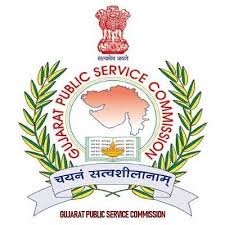The announcement of exam dates marks the beginning of an intense and critical phase in any student’s academic journey. As soon as the dates are declared, the clock starts ticking, and it’s time to transition from a general study approach to a focused, strategic preparation plan.Preparation Guide from Date Declarations to Exam Day. This comprehensive guide will walk you through each step from the moment the dates are announced to the final exam day, ensuring you are well-prepared and confident.
Understanding the Importance of Exam Date Declarations
The declaration of exam dates serves as a crucial milestone in the academic calendar. Firstly, it provides you with a clear timeline for your preparation, which is essential for effective planning. Understanding this timeline helps in structuring your study sessions, setting realistic goals, and tracking your progress.
Moreover, transitioning from uncertainty to a defined schedule helps reduce anxiety and allows you to focus on what needs to be done. With the dates in hand, you can shift from a vague preparation strategy to a targeted approach, maximizing your efficiency and effectiveness.
Step 1: Analyze the Exam Schedule
The first step in your preparation journey is to thoroughly analyze the exam schedule. Begin by noting down the dates for each exam and the subjects involved. Once you have this information, prioritize your subjects based on their difficulty level and the order in which they are scheduled.
For instance, if your most challenging subject is scheduled early, allocate more time to it in the initial weeks of your preparation. Conversely, subjects scheduled later can be revisited closer to the exam dates. Transitioning from a broad overview to a detailed study plan ensures that you are adequately prepared for each exam.
Step 2: Develop a Comprehensive Study Plan
After analyzing the schedule, the next step is to develop a comprehensive study plan. This plan should be realistic, taking into account the amount of time available and the complexity of each subject. Break down your study plan into daily and weekly goals, ensuring that each study session is purposeful and aligned with your overall objectives.
Include time for regular revision in your plan. Transitioning from new learning to review sessions helps reinforce your knowledge and improve retention. Additionally, make room for flexibility in your plan to accommodate any unforeseen changes or challenges that may arise.
Step 3: Prioritize and Organize Study Materials
With your study plan in place, it’s time to prioritize and organize your study materials. Start by gathering all the necessary textbooks, notes, and reference materials. Organize these materials based on subject and topic to streamline your study sessions.
Furthermore, consider creating a study toolkit with essential items such as flashcards, highlighters, and practice papers. Transitioning from disorganized materials to a well-organized toolkit helps improve your efficiency and focus during study sessions.
Step 4: Implement Effective Study Techniques
To make the most of your study time, implement effective study techniques. Active learning strategies such as summarizing key points, self-quizzing, and teaching concepts to others can significantly enhance your understanding and retention of the material.
Additionally, practice solving past papers and mock tests under timed conditions. This practice helps familiarize you with the exam format and improves your time management skills. Transitioning from passive reading to active engagement ensures that you are well-prepared for the types of questions you will encounter on exam day.
Step 5: Manage Your Time Efficiently
Efficient time management is crucial during your preparation period. Start by identifying your peak productivity hours—times when you are most alert and focused. Schedule your most challenging study sessions during these hours to maximize your efficiency.
Moreover, use techniques such as the Pomodoro Technique, where you study for 25 minutes followed by a 5-minute break. Transitioning from continuous study to regular breaks helps maintain concentration and prevents burnout. Adjust your study schedule as needed to ensure that you cover all topics and have ample time for revision.
Step 6: Take Care of Your Health
Your physical and mental well-being plays a vital role in your exam preparation. Ensure that you get enough sleep, eat a balanced diet, and stay hydrated. Regular exercise can also help reduce stress and improve your overall mood.
Additionally, practice stress management techniques such as deep breathing exercises or mindfulness meditation. Transitioning from high-stress periods to relaxation helps you stay calm and focused as the exam dates approach.Preparation Guide from Date Declarations to Exam Day Maintaining a healthy lifestyle supports your ability to concentrate and perform well during your exams.
Step 7: Stay Motivated and Positive
Maintaining motivation and a positive mindset is essential throughout your preparation journey. Set small, achievable goals and reward yourself when you meet them. These rewards can provide the motivation needed to stay on track.
Furthermore, surround yourself with positive influences—supportive friends, encouraging family members, or inspirational quotes. Transitioning from negative self-talk to positive affirmations helps build confidence and keeps you motivated as you work towards your goals.
Step 8: Review and Adjust Your Plan Regularly
As the exam dates approach, it’s important to regularly review and adjust your study plan. Assess your progress each week and make any necessary changes to your plan based on what is or isn’t working. Preparation Guide from Date Declarations to Exam Day.This flexibility ensures that you remain on track and can adapt to any new challenges.
Transitioning from a fixed plan to one that accommodates changes allows you to stay effective and focused. Regular reviews help identify areas where you need additional practice or revision, ensuring that you are fully prepared for exam day.
Step 9: Prepare for Exam Day
As the final exam day approaches, focus on preparing for the day itself. Ensure that you have all the necessary materials ready, such as your admit card, stationery,Preparation Guide from Date Declarations to Exam Day, and any required identification. Familiarize yourself with the exam center location and plan your route to avoid any last-minute stress.
Moreover, prepare for the exam mentally by practicing relaxation techniques and visualizing success. Transitioning from preparation to execution with a calm and confident mindset enhances your performance on exam day.
Conclusion
In conclusion, preparing from date declarations to exam day involves a strategic and well-organized approach. By analyzing the exam schedule, developing a comprehensive study plan, and implementing effective study techniques, you can ensure that you are thoroughly prepared. Managing your time efficiently, taking care of your health, and staying motivated are also key to your success.
Transitioning from preparation to exam day with a positive mindset and well-prepared plan will set you up for success. So, embrace the challenge with confidence, follow this guide, and make the most of the time you have to achieve your academic goals.





